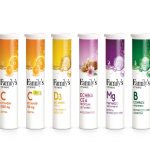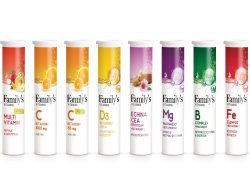Research on dietary supplements
Finally, are dietary supplements necessary? How much do we need them and what do they offer us? Has the Greek consuming public integrated them into their daily lives? What are the categories that are on the rise?
The answers to these questions are provided by a survey carried out by AKOS, a non-profit company made up of health scientists. The field of dietary supplements, despite the difficult times, is a sector on the rise, which means that in recent years the Greek consumer public has been informed, educated and selective.
This is evidenced by the survey data which showed that one in two Greeks take dietary supplements, while three out of four of those who do not take them want to take them.

It is impressive that more than 50% spend up to 25€ per month, while one in five has more than 50€ for the purchase of nutritional supplements, looking for the supplement that will ensure longevity and good quality of health.
According to the findings of the survey, the vast majority of people use dietary supplements to improve their quality of life (82%). About one in two people use them for preventive reasons (55%) and for cancer prevention (32%), while their anti-ageing effect seems to play an important role (24%).
52% of participants started taking dietary supplements when they learned that they improve health. A significant proportion (41%) reported that they started using them when they experienced a health problem and 11% when a family member became ill.
The supplements with the greatest demand are: Omega 3 fatty acids (29%), probiotics (17%), calcium (15%) and magnesium (14%), followed by protein (13%), spirulina (11%), amino acids (7%), collagen (6%) and coenzyme Q10 (3%).
Most popular are vitamins C and D (19% respectively), followed by vitamin B complex (9%), B12 (7%), E (5%), B6 (4%), A (3%) and K (2%).
The Director General of IELKA Dr. Lefteris Kioses, commenting on the results of the survey, stresses: "The increase in life expectancy, combined with the growing need for wellbeing, has led to an increased demand for nutritional supplements, which will continue."









